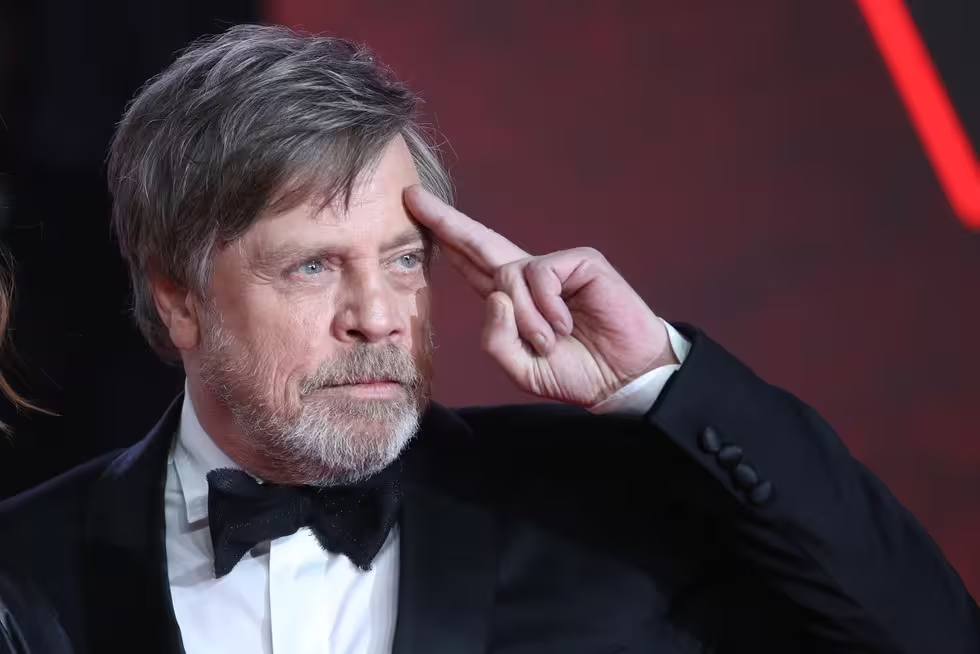5 Minutes
When a Global Icon Considered Exile
Mark Hamill — the face of Luke Skywalker and a beloved voice actor — recently revealed he briefly considered leaving the United States following a polarized election cycle. In a candid profile, Hamill described telling his wife that they could relocate to London or Ireland after the 2024 presidential outcome. Instead of signing off on an emotional exit, his wife offered a blunt, clarifying challenge that made him stay.
Why He Almost Left — and Why He Stayed
Hamill has never been a stranger to political commentary. He’s used his platform before — noticeably appearing in a 2020 Biden-Harris promotional piece — and has spoken plainly about his concerns for America’s place on the world stage. Faced with a future he found alarming, he entertained the idea of moving abroad. But his partner’s reaction reframed the decision: choosing to leave because of politics felt like allowing external forces to dictate who belongs where.
Celebrity activism and personal crossroads
This moment is as much about personal identity as it is about politics. For many artists, the decision to speak out — or to walk away — becomes entwined with creative identity and public legacy. Hamill’s choice to stay underlines how emotional reactions to politics sometimes give way to a desire to remain engaged, even when the landscape feels bleak.
From Star Wars to Political Commentary
Hamill’s career spans decades of film, television, and voice work — from classic Star Wars mythos to his acclaimed portrayal of the Joker in animation. That breadth gives weight to his public remarks. When he criticizes the administration, it resonates with movie fans who have followed him since the original Star Wars trilogy, and with younger audiences who know his voice work and social media presence.

How fans and the film industry react
Hollywood has long been a place where actors take political stands. Hamill joins a lineage of performers who blend public advocacy with their creative work. Fan responses are predictably varied: some audiences applaud outspoken artists for moral clarity; others feel alienated by politics in entertainment. Studios and franchises must navigate these currents carefully, especially with properties that depend on global box office and broad demographic appeal.
Context and Comparisons
Hamill’s stance evokes comparisons with other high-profile actors who used their celebrity to comment on politics, such as Meryl Streep or George Clooney. Unlike actors who step back from the public eye, Hamill is choosing visibility — an important distinction for fans tracking the intersection of culture and politics. In terms of career arc, his trajectory from 1970s film star to modern voice-actor and cultural commentator is similar to other artists who reinvented themselves across different media while maintaining a loyal fanbase.
Trivia and Industry Notes
Few fans may realize how diverse Hamill’s career has been: his Joker performance remains a highlight in animation history, and he’s earned accolades across multiple formats, including a Daytime Emmy. That cross-medium success gives him an influential platform when he speaks about politics or culture. It also helps explain why studios and streaming platforms keep casting veteran talent like Hamill to anchor new projects and lure devoted audiences.
Expert Take
"Hamill’s decision to stay and speak from within the country rather than retreating is emblematic of an artist who understands influence," says cinema historian Elena Rossi. "His career bridges generations, and his comments will continue to shape conversations around celebrity responsibility and the cultural role of franchises like Star Wars."
Critical Perspective
There’s a tension between celebrity speech and commercial entertainment. While outspoken figures can galvanize public debate, they can also complicate marketing for global franchises. Hamill’s example highlights a larger trend: actors are no longer just performers but also public intellectuals and cultural actors whose statements ripple across social and political spheres.
Conclusion: What This Means for Film Fans
Mark Hamill’s brief impulse to leave and his subsequent decision to stay are more than a personal anecdote; they’re a snapshot of how politics, identity, and the entertainment industry intersect in the 21st century. For movie and series enthusiasts, it’s a reminder that behind every franchise is a network of real people negotiating their roles in an increasingly politicized cultural landscape. Whether you agree with his politics or not, Hamill’s choice to remain engaged reinforces the idea that artists can shape public conversation while continuing to deliver the films and performances fans cherish.
Source: hollywoodreporter


Leave a Comment